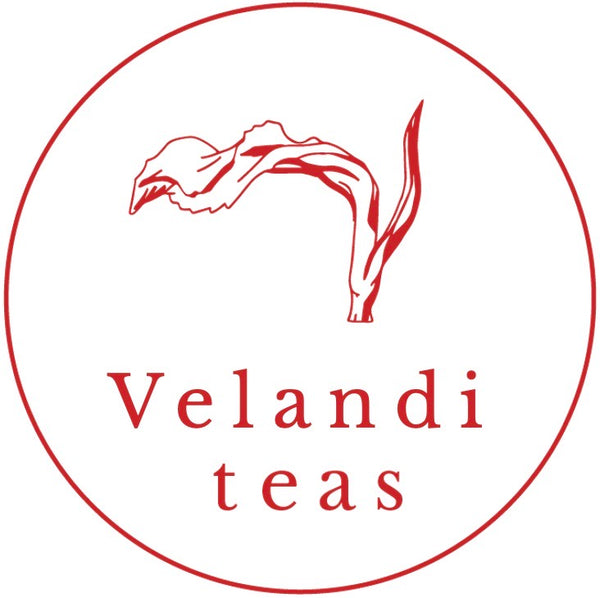Our Sourcing
Our Sourcing
At Velandi Teas we strive to offer you distinctive, delicious teas, sourced from around the world, from suppliers that demonstrate ecological responsibility in their harvest and production methods.
Through extensive research and uncountable cups of tea, we have found what many know intuitively to be true - that the best teas almost always come from small-scale, family-run tea farms that use traditional farming and processing methods, or from wild arbor tea makers who pick their teas in the wild. Very few commercial farms can compete in a blind taste test with teas harvested by hand where the tea maker takes personal pride in the quality of the finished product.
Organic Marketing
Our dedication to quality means that very few of our teas are labelled 'organic', and none of our teas are labelled 'fair trade'.
To label a product 'organic' in the U.S., the producer must be certified by the United States Department of Agriculture, or USDA for short. The USDA organic certification process is lengthy and expensive, putting it out of reach for many small tea producers, who may cultivate only 1-2 acres as opposed to the typical U.S. farm which cover hundreds of acres. In addition, if the tea grower is producing tea using traditional methods, they are likely already complying with higher standards for safety and quality than what the USDA would impose.
Another reason why a tea grower may choose not to undergo USDA certification is lack of exposure to the U.S. market. Strong local demand for specialty teas can mean that only a fraction of premium teas produced are ever exported (some reported 95% of tea grown in Japan never leaves the country). In fact, in countries like China, organic certification is often sought by less well-known and respected tea farms to help give them a marketing advantage.
Fair Trade
A similar reason explains why none of our teas are labelled 'fair trade'.
Products that consumers look for the fair trade label on are bulk commodities where the norm is to pay less than a fair wage to workers harvesting the product, such as sugar, coffee beans, and cocoa. In these circumstances, buying fair trade ensures that workers are paid fairly and granted decent working conditions.
Premium teas do not run the same risks of labor exploitation as bulk commodities. In the same way that France does not label any of its wine as 'fair trade', Taiwan does not label any of its teas as 'fair trade'. Instead, it is presumed that workers are paid a fair wage.
Countries that sell 'fair trade' tea are those that target the bulk commodity market such as Kenya and Sri Lanka (Kenya is the world's biggest exporter of tea by volume). On the bulk commodity market not only is the tea of lower quality, but it is difficult to tell where the tea came from and who picked it under what conditions. That's why if you buy tea bags from the supermarket for a few dollars, be sure to look for a fair trade certification to ensure no labor exploitation has taken place.
